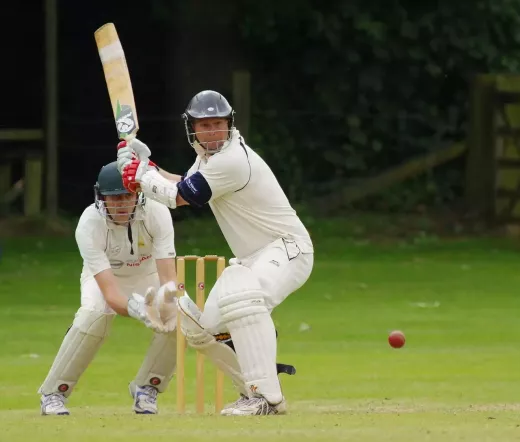Benefits of Joining a Darts League
Joining a darts league comes with numerous benefits that can enhance your overall experience and take your skills to new heights. Firstly, darts leagues provide a platform for you to meet and connect with like-minded players who share your passion for the game. This sense of camaraderie and community can greatly enrich your darting journey, allowing you to forge lasting friendships and engage in friendly banter with fellow players. Moreover, the opportunity to network with experienced players can offer valuable insights and tips to improve your game.
Another key benefit of joining a darts league is the chance to develop and enhance your skills. Regular league matches and competitions provide a structured environment for you to practice and refine your techniques. By consistently playing against opponents of varying skill levels, you'll be challenged to adapt and improve your game. This exposure to different playing styles and strategies can significantly broaden your darting knowledge and help you become a well-rounded player.
Additionally, participating in a darts league allows you to experience the thrill of friendly competition. Whether you're a naturally competitive person or simply enjoy the adrenaline rush of competing, league matches provide a unique opportunity to showcase your skills in a supportive and encouraging environment. The sense of accomplishment that comes from winning a match or achieving a personal best can be incredibly rewarding and motivate you to push yourself further.
How to Find a Local Darts League
Finding a local darts league is essential to kickstarting your journey in competitive darts. Begin by conducting a quick online search for darts leagues in your area. Local sports clubs, bars, and community centers often host darts leagues, so be sure to check their websites or contact them directly for more information. Another great resource is social media platforms, where you can join local darts groups or follow pages dedicated to promoting darts events in your region.
Attending local darting events and tournaments is another effective way to connect with the darting community and discover potential leagues. These events often attract players from various leagues, making it the perfect opportunity to network and gather information about different leagues in your area. Don't be afraid to strike up conversations and ask for recommendations – most dart players are more than happy to share their knowledge and help newcomers get started.
Once you've identified a few potential leagues, take the time to research each one to ensure it aligns with your goals and preferences. Consider factors such as the league format, skill level requirements, and the overall atmosphere. Some leagues may have a more relaxed and social focus, while others may be more competitive. It's important to find a league that suits your playing style and aligns with your expectations.
Understanding the Different Types of Darts Leagues
Darts leagues come in various formats, each with its own unique characteristics and rules. Understanding the differences between these league types will help you make an informed decision when choosing which one to join.
1. Singles Leagues: In singles leagues, players compete individually against each other. This format is great for those who prefer the spotlight and want to solely rely on their own skills and strategies to succeed. Singles leagues can be further categorized based on skill levels, allowing players to compete against opponents of similar abilities.
2. Doubles Leagues: Doubles leagues involve teams of two players competing against each other. This format adds an extra layer of strategy and teamwork, as players must coordinate their shots and communicate effectively to secure victories. Doubles leagues are a great option for those who enjoy the camaraderie and shared responsibility of playing as a team.
3. Team Leagues: Team leagues consist of multiple players forming teams and competing against one another. These leagues often have a more social and community-oriented atmosphere, as players bond and support each other throughout the season. Team leagues are ideal for players who thrive in group settings and enjoy the collective spirit of competition.
4. Mixed Leagues: Mixed leagues allow players of different genders to compete together. This format promotes inclusivity and diversity, providing a platform for both male and female players to showcase their skills and compete on an equal footing. Mixed leagues can be singles, doubles, or team-based, depending on the league's specific rules and regulations.
Joining a Darts League: Registration and Membership
Once you've selected a darts league that suits your preferences, it's time to take the necessary steps to join and become an official member. The registration process may vary depending on the league, but here are some general steps to guide you:
1. Contact the League: Reach out to the league organizers or representatives to express your interest in joining. They will provide you with the necessary information regarding registration and membership.
2. Registration Forms: Fill out any registration forms required by the league. These forms typically collect basic personal information and may include details about your playing experience or skill level.
3. Membership Fees: Pay any required membership fees. These fees help cover league expenses, such as venue rentals, equipment maintenance, and prize funds. The amount may vary depending on the league and its offerings.
4. League Rules and Code of Conduct: Familiarize yourself with the league's rules and code of conduct. This ensures that you understand the expectations and obligations of being a league member.
5. Equipment Requirements: Ensure you have the necessary equipment, such as darts, dartboard, and scoring system, that meet the league's standards. If you're unsure about the specific requirements, don't hesitate to reach out to the league organizers for guidance.
By following these steps, you'll be on your way to officially joining a darts league and immersing yourself in the exciting world of competitive darts. Remember, each league may have its own unique requirements and processes, so be sure to communicate with the league organizers and ask any questions you may have.










